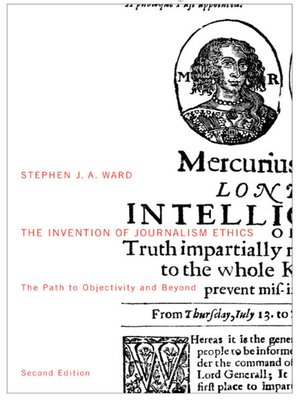The Invention of Journalism Ethics
ebook ∣ The Path to Objectivity and Beyond · McGill-Queen's Studies in the History of Ideas
By Stephen J.A. Ward

Sign up to save your library
With an OverDrive account, you can save your favorite libraries for at-a-glance information about availability. Find out more about OverDrive accounts.
Find this title in Libby, the library reading app by OverDrive.



Search for a digital library with this title
Title found at these libraries:
| Library Name | Distance |
|---|---|
| Loading... |
Does objectivity exist in the news media? In The Invention of Journalism Ethics, Stephen Ward argues that given the current emphasis on interpretation, analysis, and perspective, journalists and the public need a new theory of objectivity. He explores the varied ethical assertions of journalists over the past few centuries, focusing on the changing relationship between journalist and audience. This historical analysis leads to an innovative theory of pragmatic objectivity that enables journalists and the public to recognize and avoid biased and unbalanced reporting. Ward convincingly demonstrates that journalistic objectivity is not a set of absolute standards but the same fallible but reasonable objectivity used for making decisions in other professions and public institutions. Considered a classic in the field since its first publication in 2004, this second edition includes new chapters that bring the book up to speed with journalism ethics in the twenty-first century by focusing on the growing dominance of online journalism and calling for a radical approach to journalism ethics reform. Ward also addresses important developments that have occurred in the last decade, including the emergence of digital journalism ethics and global journalism ethics.







